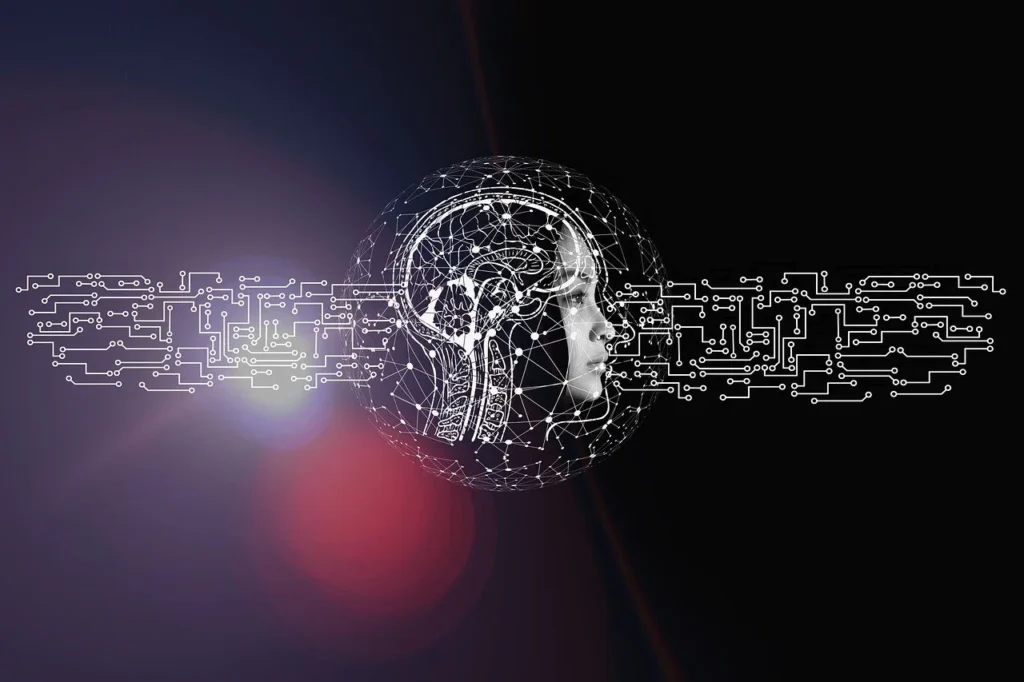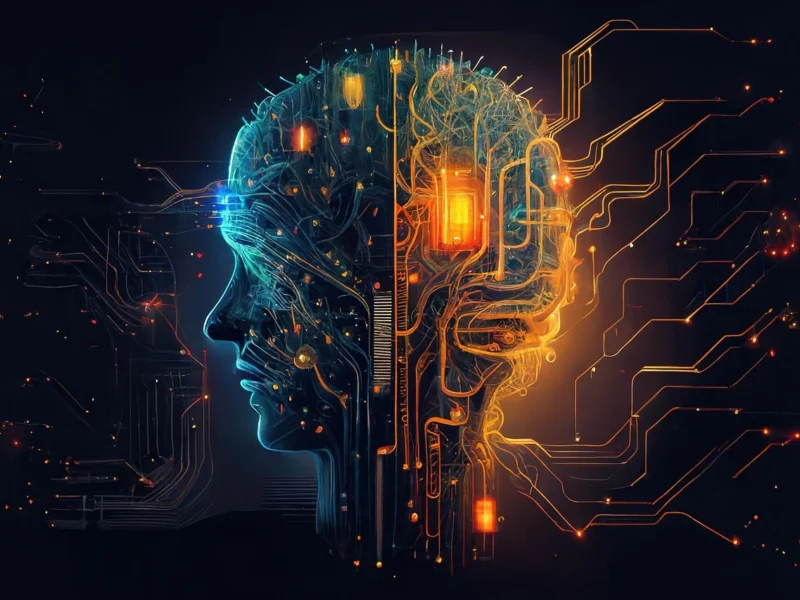Advertisements
Introduction
Advertisements
In recent years, Artificial Intelligence (AI) software has rapidly evolved, transforming industries, businesses, and even daily lives. AI is no longer just a futuristic concept—it has become a crucial part of many organizations’ digital transformation strategies. From healthcare and finance to retail and logistics, AI software solutions are helping companies automate processes, gain insights from data, and offer personalized services to customers. This article explores the current landscape of AI software, its applications, and the benefits it offers across various sectors.
What is Artificial Intelligence Software?
Artificial Intelligence (AI) software refers to programs and systems that simulate human intelligence. These systems are designed to analyze data, learn from it, and make decisions or predictions based on their understanding. The goal of AI software is to replicate or even surpass human cognitive abilities, making it capable of performing tasks such as:
- Pattern recognition
- Natural language processing
- Decision-making
- Data analysis
- Autonomous actions
AI software includes algorithms, machine learning models, and neural networks that are constantly evolving to perform increasingly complex tasks.

Types of Artificial Intelligence Software
AI software can be categorized into different types based on their functionality and application. The primary types include:
1. Machine Learning (ML) Software
Machine learning is a subset of AI that focuses on the development of algorithms that allow computers to learn from data without explicit programming. Machine learning software can analyze vast amounts of data, identify patterns, and make predictions or decisions based on those patterns.
Example: Google’s TensorFlow is a popular open-source framework used by developers to build machine learning models.
2. Natural Language Processing (NLP) Software
NLP is a field of AI focused on enabling machines to understand and interpret human language. NLP software is used in chatbots, voice assistants, and language translation tools, among others.
Example: OpenAI’s GPT-3 is a cutting-edge language model that powers virtual assistants like Siri, Alexa, and Google Assistant.
3. Computer Vision Software
This type of AI software enables machines to interpret and understand visual data from the world. Computer vision is used in applications like facial recognition, image classification, and autonomous vehicles.
Example: Amazon Rekognition is a service that allows developers to add image and video analysis capabilities to their applications.
4. Robotic Process Automation (RPA) Software
RPA involves the use of software robots or “bots” to automate repetitive, rule-based tasks. RPA software is used to streamline business processes, improve efficiency, and reduce human error.
Example: UiPath is a leader in the RPA space, offering tools to automate business workflows.
5. Expert Systems
Expert systems are AI programs designed to simulate the decision-making abilities of a human expert in a specific domain. These systems use knowledge bases and inference rules to make decisions or solve problems.
Example: MYCIN was one of the first expert systems developed to diagnose bacterial infections.
How AI Software is Transforming Industries
AI software is being used in nearly every industry, providing solutions that were once unimaginable. Below are some of the most notable ways AI is changing various sectors.
1. Healthcare
AI is revolutionizing the healthcare industry by providing advanced diagnostic tools, improving patient care, and helping with drug discovery.
- AI in Diagnostics: AI software can analyze medical images to detect diseases like cancer, heart conditions, and neurological disorders with high accuracy.
- AI in Drug Discovery: AI models are being used to predict how different compounds might behave in the human body, speeding up the drug discovery process.
- Personalized Medicine: AI helps create personalized treatment plans based on a patient’s genetic makeup and medical history.
2. Finance
In finance, AI is being applied to improve fraud detection, automate trading, and provide personalized financial advice.
- Fraud Detection: AI software can detect unusual patterns in transactions, flagging potential fraud in real-time.
- Algorithmic Trading: Machine learning algorithms are used by hedge funds and investment firms to analyze market data and make trades at high speeds.
- Robo-Advisors: These AI-driven platforms provide personalized investment advice based on users’ financial goals and risk tolerance.
3. Retail
AI is reshaping the retail sector by providing a more personalized shopping experience, optimizing inventory management, and improving customer service.
- Personalized Recommendations: AI-powered recommendation systems suggest products based on customers’ browsing history and purchase patterns.
- Supply Chain Optimization: AI software is used to forecast demand, manage stock levels, and streamline logistics to ensure efficient product delivery.
- Customer Service Chatbots: Retailers use AI chatbots to provide 24/7 customer support and assist with common inquiries.
4. Automotive and Transportation
In the automotive sector, AI is enabling the development of autonomous vehicles, improving traffic management, and enhancing driver safety.
- Self-Driving Cars: Companies like Tesla and Waymo are leading the charge in developing AI-powered self-driving cars that can navigate roads without human intervention.
- Traffic Prediction: AI is used to analyze real-time traffic data and predict congestion, helping drivers plan better routes.
- Smart Manufacturing: AI software improves the efficiency of manufacturing processes by predicting equipment failures and optimizing production lines.
5. Education
AI software is making education more accessible and personalized, offering adaptive learning tools and automating administrative tasks.
- Personalized Learning: AI algorithms can analyze student performance and provide tailored lessons to help them improve.
- Grading Automation: AI is used to grade assignments and exams, freeing up teachers to focus more on instruction.
- Virtual Tutors: AI-powered virtual tutors assist students in understanding complex topics and provide additional learning resources.
Benefits of Artificial Intelligence Software
The adoption of AI software brings numerous benefits to businesses and industries, including:
1. Increased Efficiency
AI software can automate time-consuming tasks, allowing businesses to operate more efficiently and reduce the need for human intervention in repetitive processes.
2. Improved Decision-Making
AI models can analyze vast amounts of data and provide insights that help businesses make more informed decisions. This is especially beneficial in industries like finance and healthcare, where accuracy is critical.
3. Cost Savings
By automating tasks and improving operational efficiency, AI software can help businesses reduce labor costs and avoid costly mistakes.
4. Enhanced Customer Experience
AI enables businesses to offer personalized services to customers, improving engagement and satisfaction. Whether it’s personalized product recommendations or 24/7 customer support, AI can significantly enhance the customer experience.
5. Innovation and Competitive Advantage
By adopting AI software, businesses can stay ahead of the competition by offering innovative products and services. AI also opens up new opportunities for research, development, and market expansion.
Challenges in AI Software Adoption
Despite its benefits, the widespread adoption of AI software is not without challenges:
- Data Privacy Concerns: AI software relies heavily on data, and this raises concerns about how personal and sensitive information is collected, stored, and used.
- High Initial Investment: Developing and implementing AI software can be expensive, especially for small businesses and startups.
- Lack of Skilled Professionals: There is a shortage of AI specialists, making it challenging for organizations to find qualified professionals to implement and maintain AI systems.
- Ethical Issues: AI raises several ethical concerns, including bias in algorithms, job displacement due to automation, and the potential for misuse of AI technologies.
The Future of AI Software
The future of AI software looks incredibly promising. As technology continues to advance, AI will become even more integrated into our daily lives. We can expect to see AI play a larger role in industries like healthcare, education, and transportation. Furthermore, advancements in areas like quantum computing may further accelerate AI’s capabilities, enabling even more complex and powerful applications.
Conclusion
Artificial Intelligence software is transforming the way we live and work, offering unprecedented opportunities for businesses and industries to innovate, improve efficiency, and enhance customer experiences. While there are challenges to overcome, the potential benefits of AI make it a worthwhile investment for businesses looking to stay ahead in an increasingly digital world. As AI continues to evolve, it will undoubtedly play a crucial role in shaping the future of technology and society as a whole.
Call to Action:
For businesses interested in implementing AI software solutions, it’s important to partner with trusted AI software providers that can guide you through the complexities of deployment. Start exploring AI opportunities today to stay ahead of the competition and unlock new efficiencies for your business.
Advertisements
